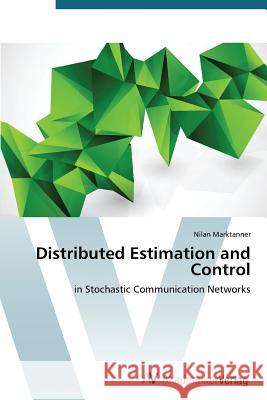Distributed Estimation and Control » książka
Distributed Estimation and Control
ISBN-13: 9783639726596 / Angielski / Miękka / 2014 / 64 str.
In recent years, the popularity for wireless network setups has risen as they provide flexible communication. Therefore, there is an increasing interest in methods to counteract the drawbacks of such communication networks. Handling packet losses and packet delays is particular challenging. Different approaches will be presented to tackle these problems. Central observations that are also useful for the following approaches will be made using the Centralized Kalman Filter for time-varying information, which yields optimal results under certain assumptions. The examination of time-invariant or scalar systems yields further simplifying observations. The distributed counterpart to the Centralized Kalman Filter, the Distributed Kalman Filter for time-varying information, will be derived by decomposing the formulas from the central case without losing the optimality of the estimate. Finally, the Hypothesizing Kalman Filter for time-varying information is able to cope with packet loss without relying on previous assumptions of the former approaches. Depending on hypotheses about the communication structure, the filter is able to provide up to optimal estimates.
In recent years, the popularity for wireless network setups has risen as they provide flexible communication. Therefore, there is an increasing interest in methods to counteract the drawbacks of such communication networks. Handling packet losses and packet delays is particular challenging. Different approaches will be presented to tackle these problems. Central observations that are also useful for the following approaches will be made using the Centralized Kalman Filter for time-varying information, which yields optimal results under certain assumptions. The examination of time-invariant or scalar systems yields further simplifying observations. The distributed counterpart to the Centralized Kalman Filter, the Distributed Kalman Filter for time-varying information, will be derived by decomposing the formulas from the central case without losing the optimality of the estimate. Finally, the Hypothesizing Kalman Filter for time-varying information is able to cope with packet loss without relying on previous assumptions of the former approaches. Depending on hypotheses about the communication structure, the filter is able to provide up to optimal estimates.











